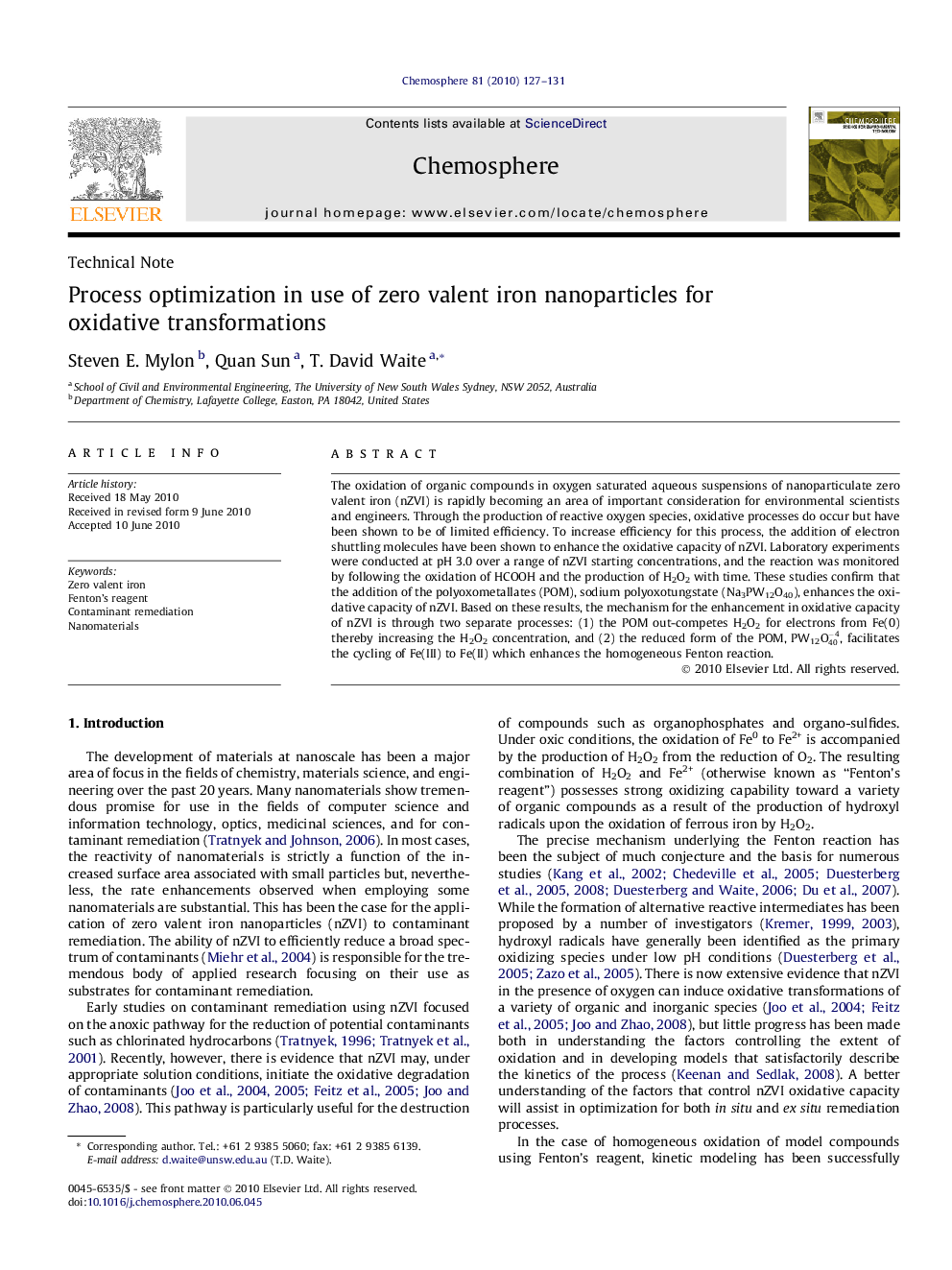| Article ID | Journal | Published Year | Pages | File Type |
|---|---|---|---|---|
| 4411927 | Chemosphere | 2010 | 5 Pages |
The oxidation of organic compounds in oxygen saturated aqueous suspensions of nanoparticulate zero valent iron (nZVI) is rapidly becoming an area of important consideration for environmental scientists and engineers. Through the production of reactive oxygen species, oxidative processes do occur but have been shown to be of limited efficiency. To increase efficiency for this process, the addition of electron shuttling molecules have been shown to enhance the oxidative capacity of nZVI. Laboratory experiments were conducted at pH 3.0 over a range of nZVI starting concentrations, and the reaction was monitored by following the oxidation of HCOOH and the production of H2O2 with time. These studies confirm that the addition of the polyoxometallates (POM), sodium polyoxotungstate (Na3PW12O40), enhances the oxidative capacity of nZVI. Based on these results, the mechanism for the enhancement in oxidative capacity of nZVI is through two separate processes: (1) the POM out-competes H2O2 for electrons from Fe(0) thereby increasing the H2O2 concentration, and (2) the reduced form of the POM, PW12O40-4, facilitates the cycling of Fe(III) to Fe(II) which enhances the homogeneous Fenton reaction.
